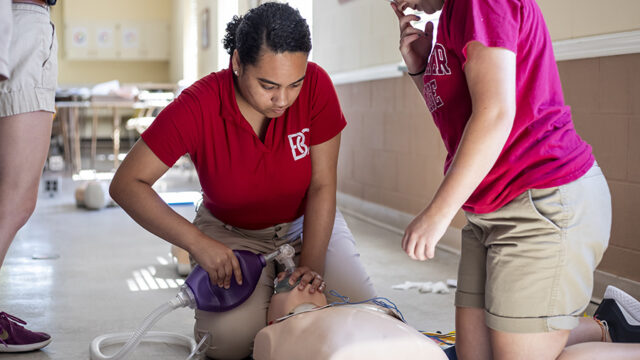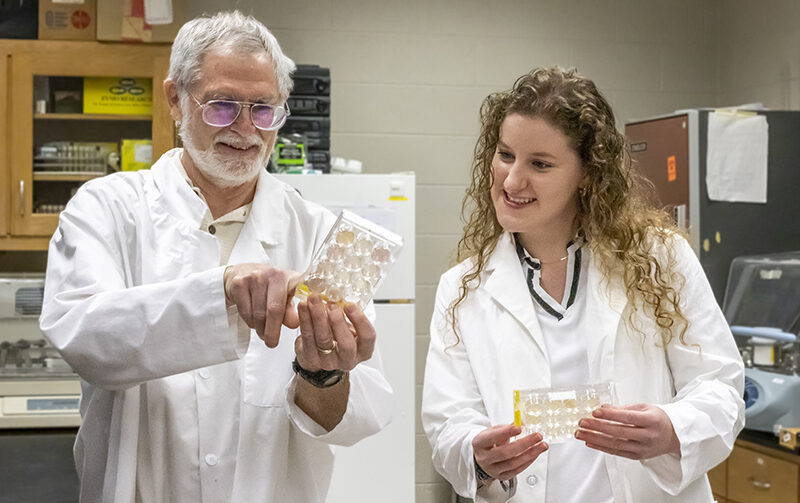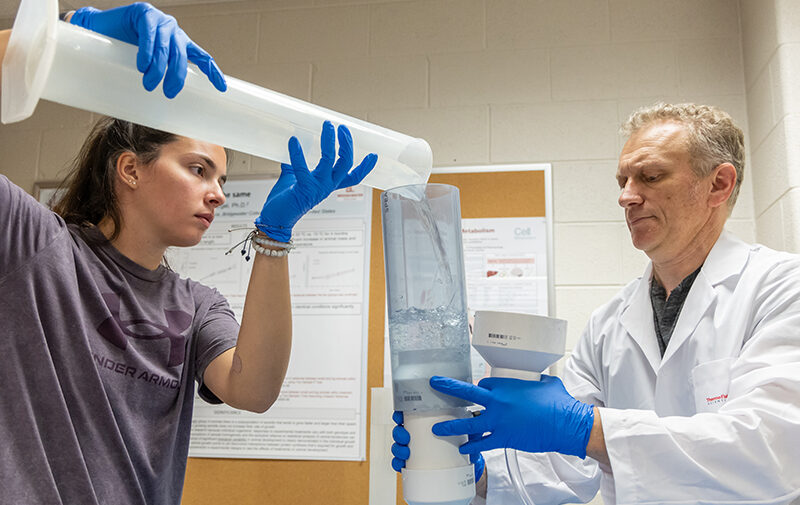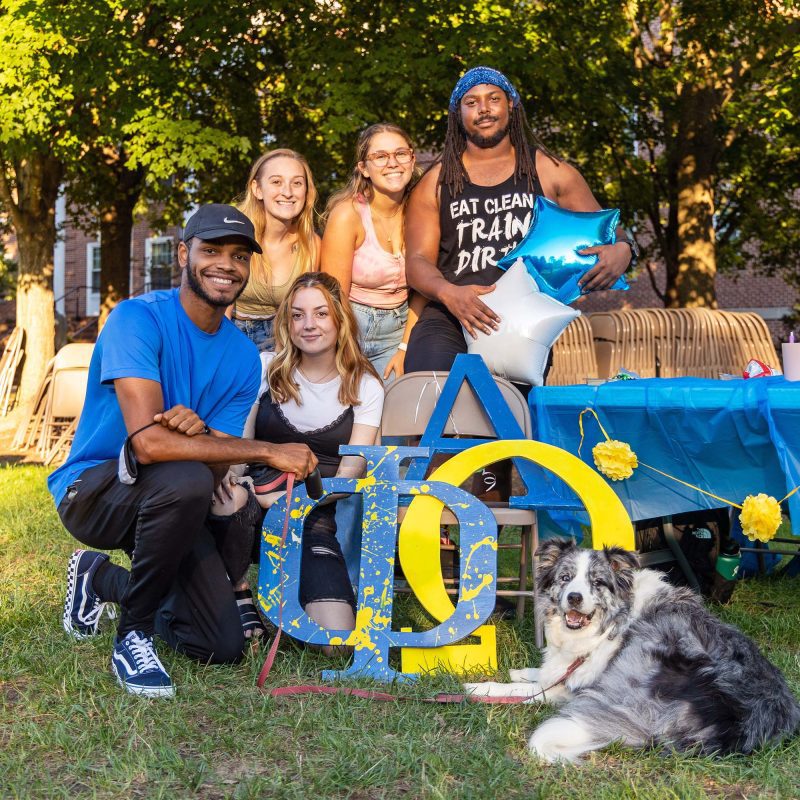Prepare for a Future in Healthcare
Attending college with the goal of going into medicine, dentistry, physical therapy or any other healthcare fields is a daunting prospect. You need the right courses, clinical and volunteer experiences, and entrance exams in addition to a strong resume, personal statement, and interview skills. At Bridgewater College, you’ll find experienced advisors who want you to succeed and will assist you in navigating these challenges. You’ll emerge as a strong candidate for your program of choice.
Advising Guides
Bridgewater College has a legacy of sending students to a wide variety of healthcare programs, including human and veterinary medicine, physician’s assistant, physical and occupational therapy, radiology, clinical lab sciences, dentistry and optometry. The pre-health advisors have compiled detailed advising guides to ensure you know which courses, exams and experiences are essential.
Students interested in medical school can have a wide variety of majors, but most major in biology, chemistry or biochemistry. Medical schools can be allopathic (MD degree) or osteopathic (DO degree), differing primarily on their philosophical approach to medicine. Each requires the MCAT test, rigorous coursework, and clinical and volunteer experiences to apply. Check out the Medical School Advising Guide to learn more.
Like medical school, students interested in veterinary medicine can have a wide variety of majors, but most major in biology, chemistry or biochemistry. Most have moved to competency-based admissions, which evaluates applicants on not only their academic ability but also their interpersonal abilities and attributes. For more information, check out the Veterinary School Advising Guide to learn more.
As with many healthcare fields, students can have a wide variety of majors, but most major in biology, chemistry or biochemistry. Graduates receive either a Doctor of Dental Surgery or Doctor of Dental Medicine, and both allow one to practice general dentistry. Dental schools require the DCAT test, rigorous coursework and shadowing hours to apply. Check out the Dental School Advising Guide to learn more.
Optometrists examine, diagnose, treat and manage diseases and disorders of the eye, and, in some states, can perform some in-office surgeries. Students interested in optometry typically major in biology or biochemistry. Optometry schools require the OCAT test, rigorous coursework and shadowing hours to apply. Check out the Optometry School Advising Guide to learn more.
Students interested in pharmacy are normally biochemistry majors. You will also need to take several biology and many general education (math, physics, social sciences, etc.) courses to fulfill the admissions requirements. You may also be required to take the PCAT test. All pharmacy schools have slightly different requirements and prerequisite courses. Check out the Pharmacy Advising Guide to learn more.
Physical therapists help injured or ill people improve movement and manage pain. Physical therapy is often an important part of preventive care, rehabilitation, and treatment for patients. Students interested in physical therapy should pursue an undergraduate major of health and exercise science or biology. Articulation agreements exist with Shenandoah University and Mary Baldwin University that allow qualified students from Bridgewater College to be admitted into their physical therapy programs. Contact the chair of the Department of Health and Human Sciences for more information. Check out the Physical Therapy Advising Guide to learn more.
Occupational therapy is a branch of healthcare that helps people of all ages who have physical, sensory or cognitive problems. Students interested in occupational therapy typically major in health and exercise science, although other routes are possible. Bridgewater College has an articulation agreement with Mary Baldwin University that allows qualified students from BC to be interviewed for their occupational therapy program. Check out the Occupational Therapy Advising Guide to learn more.
Physician assistant is a growing area in healthcare, with eight schools in Virginia offering PA programs. Students interested in pursuing graduate school to become a physician assistant should consult with faculty in the Department of Biology and Environmental Science and/or the Department of Health and Human Sciences. Additionally, an articulation agreement exists with Mary Baldwin University allowing qualified students from Bridgewater College to be admitted into their physician assistant program. Contact the chair of the Department of Health and Human Sciences for more information and check out the Physician Assistant Advising Guide to learn more.
Athletic training encompasses the prevention, examination, diagnosis, treatment and rehabilitation of injuries and medical conditions. While typically found on the sidelines at athletic events, athletic trainers are also employed by the military, in the performing arts and in a variety of industrial and corporate settings. Bridgewater offers a Master of Science in Athletic Training (MSAT) degree program. Check out the Athletic Training Advising Guide to learn more.
A medical laboratory scientist (MLS), also known as a medical technologist or clinical laboratory scientist, analyzes biological specimens in a clinical setting. They perform scientific testing on samples and reporting results to physicians playing a vital role in patient diagnosis. Their work aids in the identification and treatment of cancer, heart disease, diabetes and other medical conditions. Bridgewater has an articulation agreement with Sentara RMH Medical Center in Harrisonburg. Check out the Medical Lab Sciences Advising Guide to learn more.
Histotechnology is the microscopic detection of tissue abnormalities for disease diagnosis and treatment of diseases utilizing specific reagents, chemicals and dyes. Students interested in pursuing post-baccalaureate training in histotechnology typically major in biology or health and exercise science and should check out the Histotechnology Advising Guide to learn more.
Radiology encompasses a wide range of imaging techniques including X-ray, CT and PET scans, ultrasound, MRIs and more. Students interested in pursuing post-baccalaureate training in radiology typically major in biology or health and exercise science and should check out the Radiology Advising Guide to learn more.
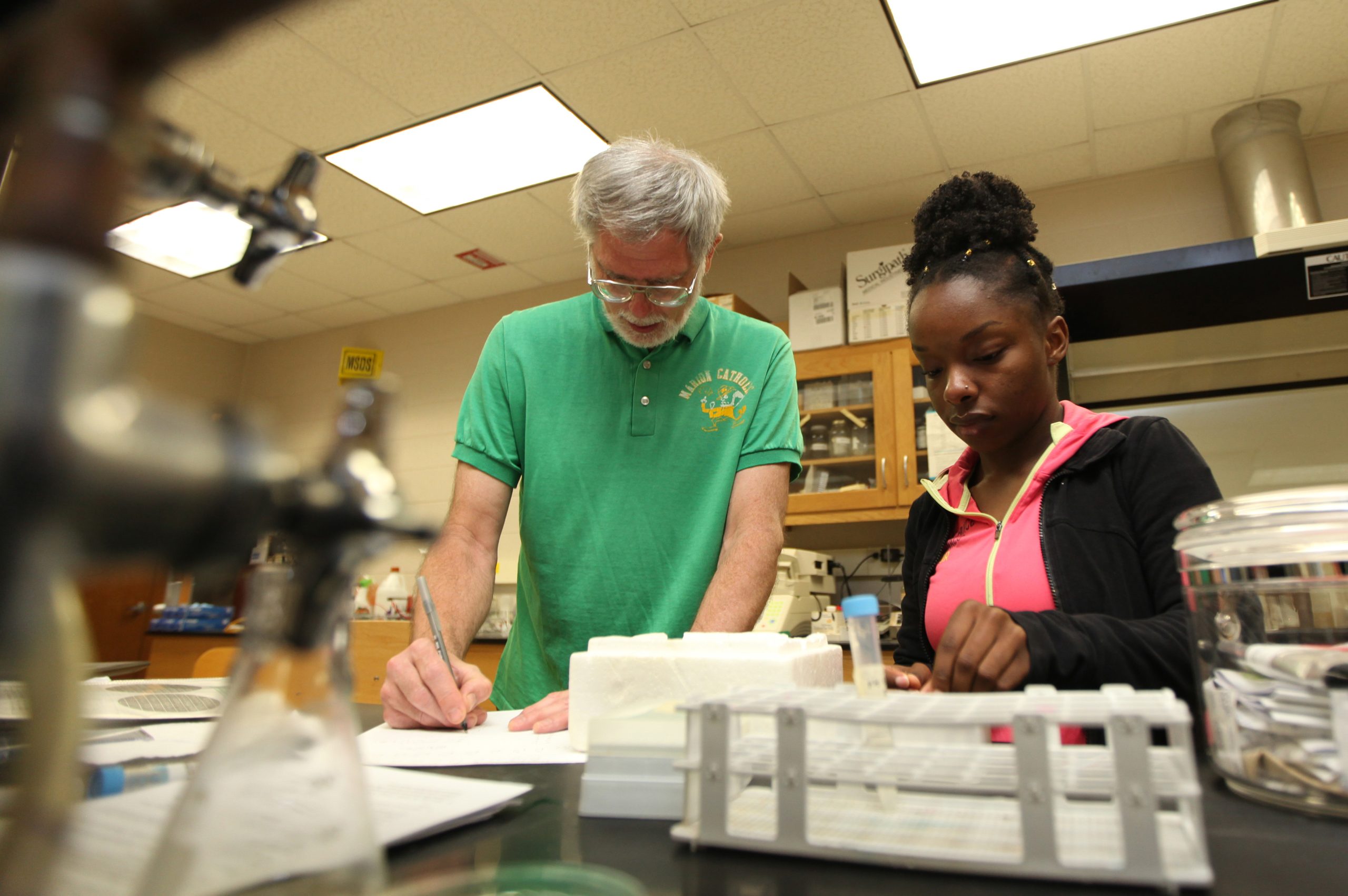
Pre-Health Programs
With dedicated faculty, hands-on experiences, and tailored advising, Bridgewater College ensures that students are well-prepared to excel in their chosen healthcare careers. Bridgewater’s education provides the essential foundation and personalized guidance needed for students to gain admission into top graduate and professional schools in these fields.
Medicine
- Eastern Virginia Medical School
- University of Virginia
- Virginia Commonwealth University
- Virginia College of Osteopathic Medicine
- Virginia Tech University Carillion School of Medicine
Veterinary Medicine
Dental
Physician’s Assistant
- Eastern Virginia Medical School
- Emory and Henry College
- James Madison University
- Jefferson College of Health Sciences
- Mary Baldwin University
- Randolph-Macon College
- Shenandoah University
- South University, Richmond
- University of Lynchburg
Physical Therapy
- Emory and Henry College
- Hampton University
- Mary Baldwin University
- Marymount University
- Old Dominion University
- Radford University
- Shenandoah University
- University of Lynchburg
- Virginia Commonwealth University
Occupational Therapy
- Emory and Henry College
- Mary Baldwin University
- Old Dominion University
- Shenandoah University
- Virginia Commonwealth University
Athletic Training
- Bridgewater College
- George Mason University
- James Madison University
- Liberty University
- Old Dominion University
- Radford University
- Shenandoah University
- University of Lynchburg
Pharmacy
- Appalachian College of Pharmacy
- Hampton University
- Shenandoah University
- Virginia Commonwealth University
Medical Laboratory Sciences
Histotechnology
Radiologic Technology
Nursing
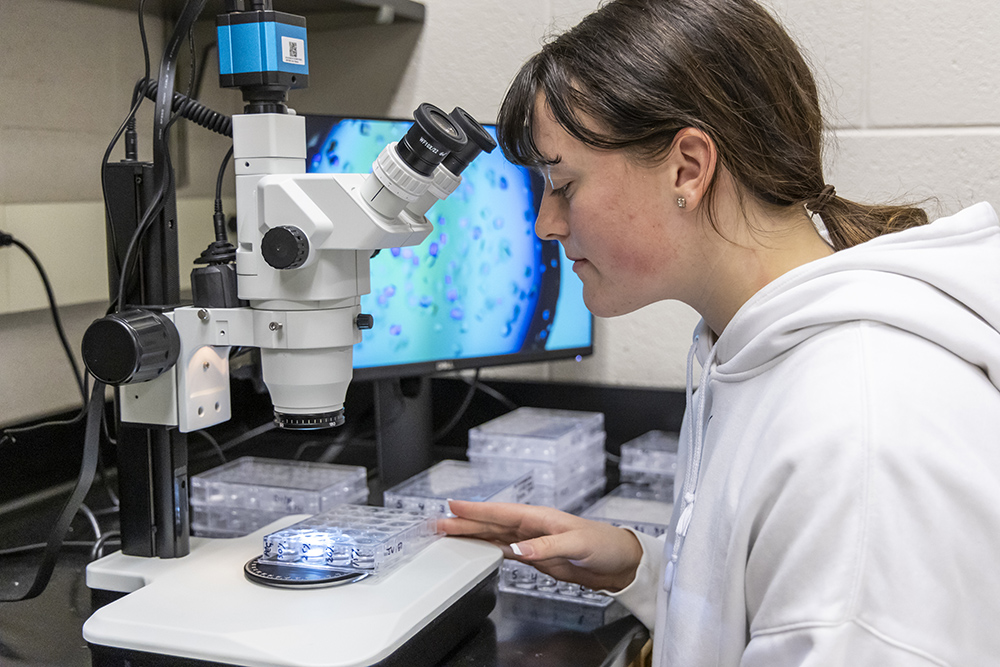
Pre-Health Seminar
The Pre-Health Seminar, part of the College’s Biomedical Sciences minor, provides a setting to work on your resume, personal statement and interview skills, as well as opportunities to reach out to BC alumni and meet local healthcare providers as you learn about their field.
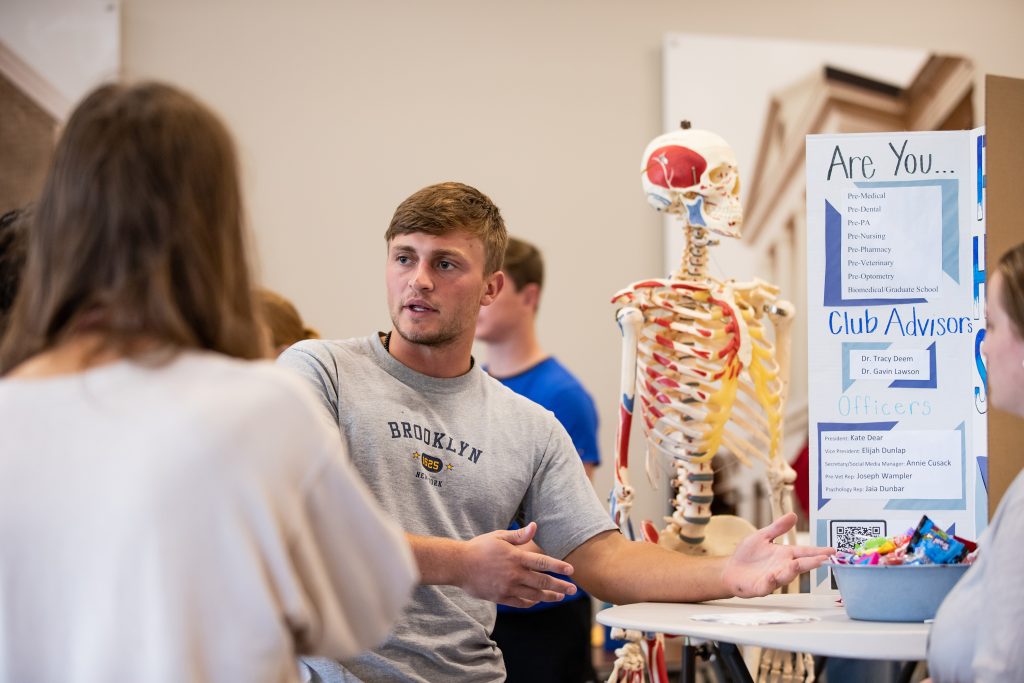
Pre-Health Society
The Pre-Health Society is a student organization open to all students interested in pursuing careers in health and medicine. Meet other BC students who share your passion and interests!
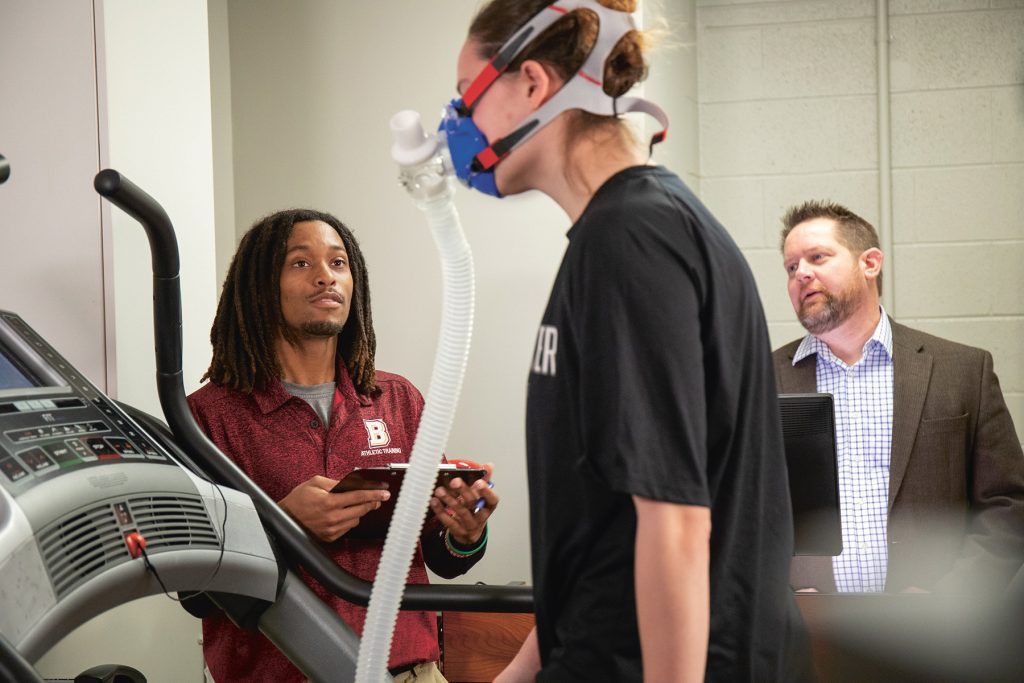
Articulation Agreements
Bridgewater College also has articulation agreements with nearby hospitals and graduate programs including:
- Sentara RMH Medical Center in Harrisonburg for clinical lab sciences
- Mary Baldwin University for occupational and physical therapy and physician’s assistant training
- Shenandoah University for physical therapy
- Virginia College of Osteopathic Medicine
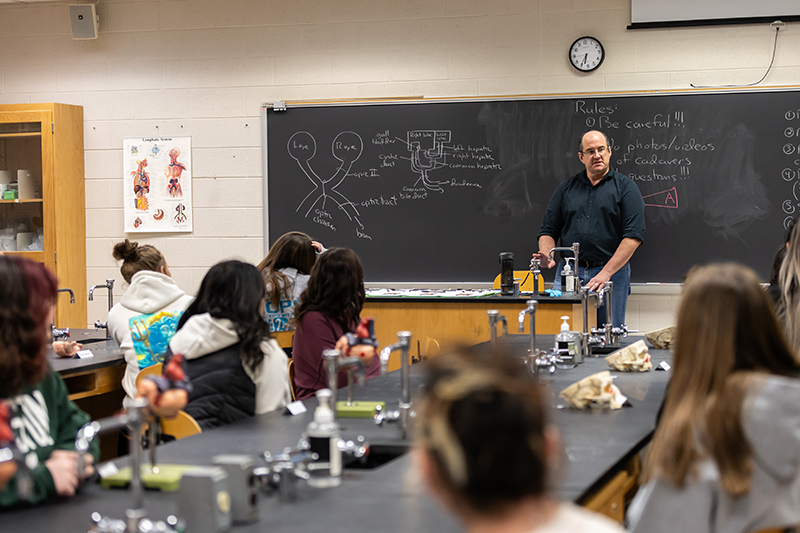
Cadaver Lab Program
Bridgewater College’s Biology Department offers a unique opportunity for students to study human anatomy through the use of human cadavers. This hands-on approach provides invaluable insights into the intricacies of the human body, far surpassing the limitations of models or digital simulations.
Understanding the Cadaver Donation Process
The cadavers used in our program are donated by individuals who have generously chosen to contribute to medical education and research. After a life well-lived, these donors make a lasting impact by allowing future healthcare professionals to learn from their physical form. These cadavers are sourced through a partnership with the Virginia State Anatomical Program (VSAP), which obtains voluntary donations and supplies cadavers to institutions across Virginia.
Respect for the Donors
The College treats these donated bodies with the utmost respect and reverence. Students are expected to handle the cadavers with dignity and professionalism. By studying these human remains, students gain a deeper understanding of anatomy and physiology, preparing them for careers in medicine, physical therapy, and other healthcare fields.
Community Outreach
To inspire future generations of scientists and healthcare professionals, the Biology Department also offers educational opportunities for local high school students. These students have the chance to observe and, in some cases, directly interact with the cadavers, providing them with a firsthand look at human anatomy.
